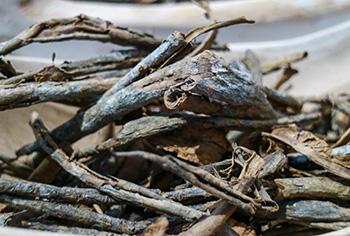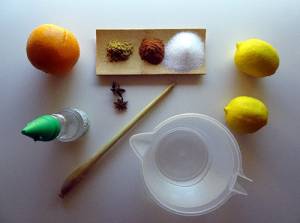What Happened to Paxlovid?
The COVID antiviral arrived too late for the Omicron wave, but it remains a powerful weapon.
5 Plant Extract Oils That Boost Your Immune System—At Any Age!
Clove has the power to kill nasty germs and fungus. A study in the Annals of Microbiology concludes clove essential oil has anti-carcinogenic activity against a large number of oral pathogens. Clove neutralizes harmful Staphylococcus bacteria (“staph” infections) as well as E. coli (the same bacteria responsible for food poisoning), as well as Candida albicans. The main natural chemical in clove, eugenol, has been shown to have anti-inflammatory activities stronger than over-the-counter NSAIDs.
Lemon contains broad-spectrum antiviral activity. That means it protects you against several different kinds of viruses, such as those that cause colds and the flu. Lemon also greatly assists the body’s detoxification processes. An active ingredient in lemon, linalool, has antibacterial properties, especially against a nasty bug called “acinetobacter,” which can cause serious infections and antibiotic resistance.
Cinnamon boosts your respiratory system and protects you against unfriendly bacteria in your body. A compound in cinnamon called “cinnamic aldehyde” is the active ingredient that kills several harmful types of fungi, including Aspergillus niger, aka “black mold.” And in studies using cell lines, cinnamon has been shown to suppress the growth of tumors.
Eucalyptus has been used for centuries to help people breathe easier. A particular species of it, eucalyptus globulus, has been shown in research studies to help inhibit several types of bacteria that can make you very sick, such as H. influenzae and S. pneumoniae.
Rosemary improves your immune system as it reduces muscle pain and the inflammation response. It also breaks up mucus throughout the body. Laboratory studies reveal the antioxidants in rosemary neutralize free radical dama
How to Make Quinine at Home For The Immune System
How to Make Quinine at Home For The Immune System
How to Make a Vitamin Bar to Increase Your Immunity
Want to Fortify Your Immune System This Holiday Season and Beyond? (Learn More)
How to Make an Immunity Boosting Shot with Celery, Spinach, Ginger, Lemon, and Manuka Honey
Easy Hot Toddy Recipe For Cough and Cold
10 Herbs That Kill Viruses and Clear Lungs
NOTES from above articles:
Who Should Avoid Taking Quinine?
Quinine from Cinchona tree bark can interact with quite a few medications including:

- Blood thinners
- Antidepressants
- Statins
- Antacids
- Neuromuscular-blocking drugs
- Seizure medication
- Antibiotics
Other people who should avoid it include those who are pregnant or breastfeeding, have liver or kidney disease, have low blood sugar levels, or have abnormal heart rhythms. If you’re taking any other medication or have any other underlying health conditions you should speak to your doctor to make sure quinine won’t negatively impact your condition or medication.
Quinine From Cinchona Bark
While not as common as some other remedies, quinine tincture extracted from Cinchona bark is often used to boost the immune system. It can be found in liquid form and capsules. Quinine may also relieve muscle cramps and improve digestive health.
How To Make This Quinine At Home
This Quinine mix takes approximately 1 hour of prep and cook time and then 72 hours in the fridge plus you need to shake it once a day. The quantities below will give you 12 portions if you mix the quinine 1 part to 2 parts water/sparkling water.
Ingredients
- 4 cups of filtered water

- 2 Teaspoons of powdered cinchona bark (3 grams)
- 1 Orange (zest only)
- 2 Lemons (zest only)
- 2 Star anise pods
- 1 Lemongrass stalk
- 2 Tablespoons of citric acid
- 1 teaspoon of coriander powder (or 1 ¼ teaspoon of coriander seeds)
- 10 drops of liquid stevia
- Water/sparkling water (to mix with once the Quinine mixture is ready)
Where to buy Quinine: (to research and add here the information)
------------------------

Comments